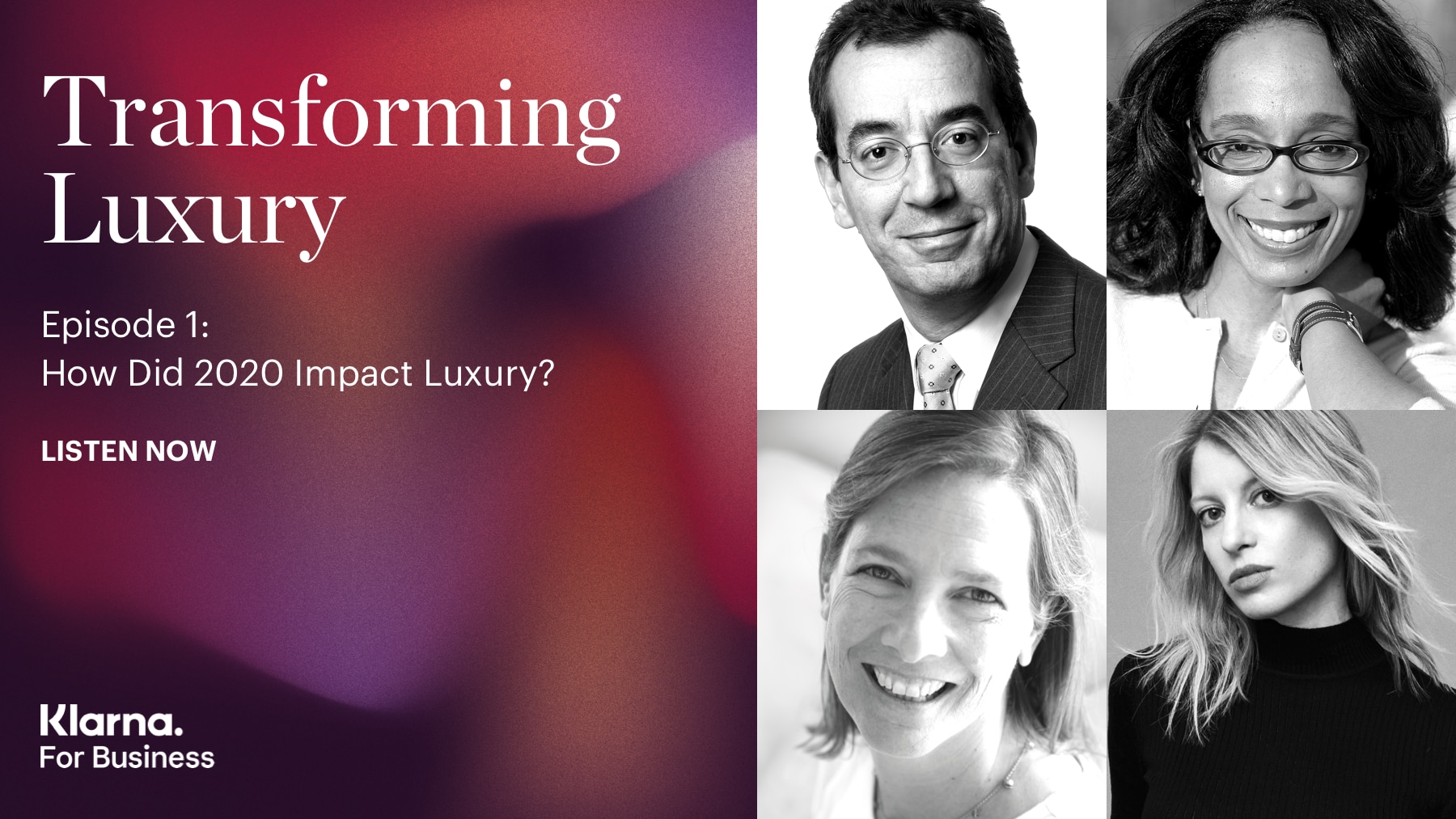
Follow the series to ensure you never miss an episode.
BoF is investigating how market disruption, new technology and increasing consumer scrutiny are driving transformative change in the $300 billion luxury goods market, in an exclusive new podcast series presented by Klarna.
As the extraordinary events of 2020 — from the global pandemic, lockdowns and economic downturns to the accelerating climate crisis and social justice movements — impacted the luxury industry, scale-driven advantages widened the performance gap between the industry’s super winners and the rest of the market. In 2020, BoF reported that 75 percent of companies did not generate enough economic profit to cover the cost of their capital. Yet, the leading mega brands and conglomerates reported record sales.
However, a growing dissonance is emerging between luxury’s traditional values of scarcity and exclusivity, and the emergence of a more inclusive, egalitarian and sustainable global consumer culture, making the luxury industry vulnerable to shifting sentiment. Today, businesses must respond to growing consumer scrutiny around the sociological and ecological impact of how they operate and what they produce.
To discover what this means for the future of the luxury goods industry, BoF assembled four global authorities to share their insights with host Robin Mellery-Pratt.
Robin Givhan is senior critic-at-large at The Washington Post, writing on race, politics and the arts. She was the first fashion writer to receive the Pulitzer Prize for Criticism in 2006. Givhan’s work has also appeared in New York Magazine and the New Yorker, among other publications.
“So much of luxury is about being perceived as part of the ‘in’ crowd, which underscores this idea that it’s not for everyone. When that’s the way that you run a business and the culture starts shifting around you — saying that everything should be open to everyone — then it runs contrary to your business practice.”
Luca Solca is an investment research analyst and managing director of luxury goods at Sanford C. Bernstein. Formerly a partner of the Boston Consulting Group, Solca has more than 25 years’ experience in luxury goods and is a regular BoF contributor.
“The number of fronts that luxury goods brands need to manage has continued to explode. The digital revolution has brought so many new things that brands need to invest in. You have brands that make more than €10 billion of revenue per year and invest mid-to-high single digits in communication. That creates a huge amount of fire power. Bigger brands clearly have a scale advantage.”
Melissa Morris is the founder and designer of Métier, an independent leather maison best known for its logo-free handbags, travel bags and accessories. Prior to launching Métier in 2017, Morris studied sculpture and business at Emory University before working for Armani, Helmut Lang and Belstaff.
“The pace of the industry is getting faster and faster, it’s impossible to keep up. And it’s impossible to create products that are as perfect as they need to be in the luxury world. From my experience working in luxury brands, you’re constantly chasing from a development and production perspective, but also from a design perspective. You can’t have the time to properly think things through. That then erodes quality, which is vital.”
Dana Thomas is the author of “Fashionopolis: The Price of Fast Fashion and the Future of Clothes” and the New York Times bestseller “Deluxe: How Luxury Lost Its Lustre.” Thomas is an award-winning journalist covering fashion and culture, she is a regular contributor to The New York Times’ Style section and Vogue.
“I don’t think it’s greenwashing. They actually believe what they say, but to do it is another thing. It’s a long-term investment and these companies, because they’re so wedded to their quarterly returns and their stock market prices, they’re afraid to make those long-term investments. It takes a lot of courage and you have to take it on the chin initially in order to make it pay off in the long term.”
Follow the series to ensure you never miss an episode and discover actionable insights into the opportunities and challenges a redefined industry will bring and how luxury’s transformation will impact your business.



